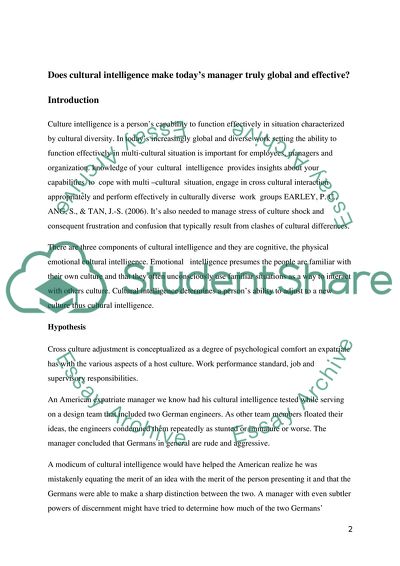Cite this document
(Emotional Intelligence and Interactions Across Cultures Report Example | Topics and Well Written Essays - 1250 words, n.d.)
Emotional Intelligence and Interactions Across Cultures Report Example | Topics and Well Written Essays - 1250 words. https://studentshare.org/culture/1819108-cross-cultural-management-coursework-2
Emotional Intelligence and Interactions Across Cultures Report Example | Topics and Well Written Essays - 1250 words. https://studentshare.org/culture/1819108-cross-cultural-management-coursework-2
(Emotional Intelligence and Interactions Across Cultures Report Example | Topics and Well Written Essays - 1250 Words)
Emotional Intelligence and Interactions Across Cultures Report Example | Topics and Well Written Essays - 1250 Words. https://studentshare.org/culture/1819108-cross-cultural-management-coursework-2.
Emotional Intelligence and Interactions Across Cultures Report Example | Topics and Well Written Essays - 1250 Words. https://studentshare.org/culture/1819108-cross-cultural-management-coursework-2.
“Emotional Intelligence and Interactions Across Cultures Report Example | Topics and Well Written Essays - 1250 Words”. https://studentshare.org/culture/1819108-cross-cultural-management-coursework-2.


